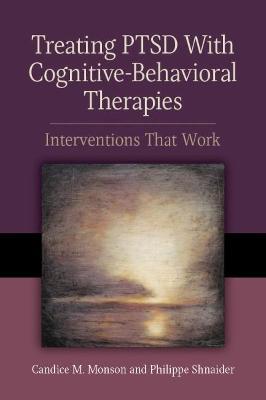Candice M. Monson, PhD, is a professor of psychology and director of clinical training at Ryerson University in Toronto, Ontario. She is also an Affiliate of the Women's Health Sciences Division of the U.S. Veterans Affairs National Center for Posttraumatic Stress Disorder, where she previously served as deputy director. Dr. Monson is one of the foremost experts on traumatic stress and the use of individual and conjoint therapies to treat posttraumatic stress disorder (PTSD). She has published extensively on the development, evaluation, and dissemination of PTSD treatments more generally, as well as gender differences in violence perpetration and victimization. Dr. Monson has been funded by the U.S. Department of Veterans Affairs, National Institute of Mental Health, Centers for Disease Control and Prevention, Department of Defense, and Canadian Institutes of Health Research for her research on interpersonal factors in traumatization and couple-based interventions for PTSD. She is a Fellow of the Canadian Psychological Association. She coauthored
Cognitive Processing Therapy: Veteran/Military Version and is the original developer of cognitive-behavioral conjoint therapy for PTSD. Dr. Monson is well-known for her efforts in training clinicians in evidence-based interventions for PTSD.
Philippe Shnaider, MA, is a graduate student in the department of psychology at Ryerson University. His research focuses on examining the associations between PTSD, intimate relationships, and partners' psychological functioning, as well as how these factors change in individual- and couple-based interventions. Additionally, his research examines the associations between impairments in specific domains of psychosocial functioning and PTSD symptom clusters, with a focus on how changes in these variables occur with treatment. His clinical interests include the treatment of PTSD and anxiety disorders, as well as the use of couple-based interventions to treat individual mental health conditions. He is also involved in efforts to disseminate empirically based treatments for PTSD among front-line clinicians.










